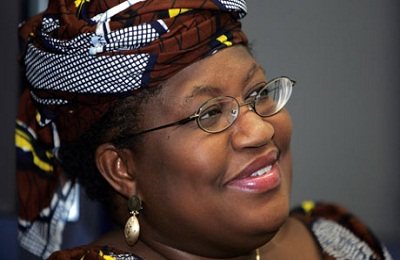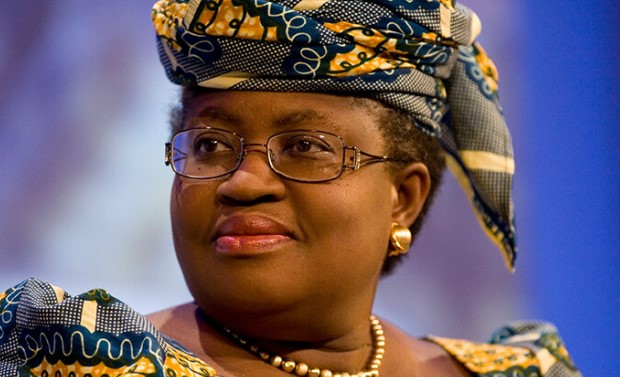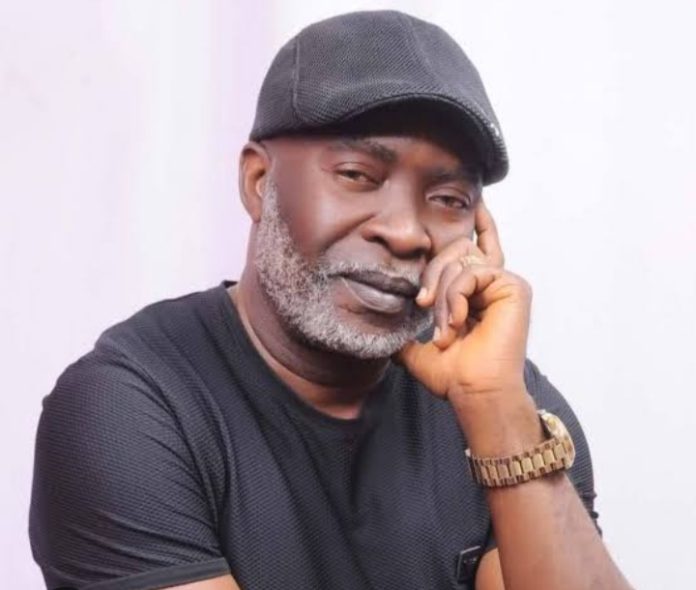News
Nigeria Missing in Africa’s Top 5 Performing Economies of 2013

That Africa is set to become the world’s economic engine in the next 10 years or during the 21st century is no doubt a well-known fact.
Unfortunately, Nigeria is not one of the top five. Countries like Malawi, Mozambique, Angola, Ethiopia and Zambia outperform her,.
But that almost all the 54 countries on the continent compete fiercely to be in the top position of the 5 fastest-growing economies in Africa is little known, according to Venture Africa.
Venture Africa said, however, it becomes evident when the names of the top performing economies on the continent changes each year.
According to auditing firm Ernst & Young’s 2013 Competitive Survey, the projected GDP growth from 2012-2017 Malawi tops the list with an expected GDP growth during this period of 7 percent and followed closely by Mozambique at 6.8 percent economic growth.
In the third place is Angola with the projected GDP growth of 6.5 percent in the next six years. Ethiopia’s GDP growth is expected to be 6.3 percent while Zambia is expected to grow its GDP by 6.2 percent.
Despite the negative impact of global economic crises, the size of the African economy has more than tripled since 2000, according to Ernst & Young. The continent also hold bright prospects, with many countries in Africa set to continue recording high economic growth levels in the future.
The cynics will more often than not opine that most of this economic growth is being driven by natural resources. But that is certainly not the case.
According to the International Business Times website, the number of Africans living in the cities has surged dramatically and it could soon surpass that of India, which is considered to be the leader at this stage.
It is believed that in the next 16 years, half of all Africans will be living in the cities. It is also understood that Africa’s middle class is set to be bigger than that of India.
The market influences of the west, which Africa is increasingly approving, are pushing down inflation and reducing sovereign debt.
Intra-African trade is changing on the continent with Africa boasting five growing trade blocs. In total, Africa has a $2 trillion economy, according to the International Business Times.
Underlisted are the top performing economies in Africa.
Malawi
According to the African Economic Outlook, Malawi’s economic growth in 2013 and next year is forecast to bounce back to 5.5 percent and 6.1 percent respectively.
The state has renewed its commitment to credible macroeconomic policies. Good governance has prompted the International Monetary Fund (IMF) to approve a new Enhanced Credit Facility (ECF) programme for the country. This has led to the reopening of donor financial back-up to Malawi.
Mozambique
Mozambique’s steady ramping up of coal production, the implementation of large infrastructure projects and credit expansion are expected to continue to drive growth to 8.5 percent in 2013 and 8 percent in 2014, according to the African Economic Outlook.
The World Bank says the country’s emerging extractive industry could also provide the means for Mozambique to reach the status of a middle-income country by 2025.
Angola
Angola’s economy bounced back robustly after recording sluggish growth due to oil and financial crises.
The Report forecast growth in Angola to rise to 8.2 percent in 2013 and 7.8 percent in 2014 on the back of oil and gas sector expansion. There is also a public expenditure programme made to inspire economic diversification.
Ethiopia
Ethiopia’s economy saw a ninth successive year of vigorous growth last year estimated at 6.9 percent, the African Economic Outlook states.
The growth was driven by a surging role for services and industry. This motion is set to stay until next year.
Zambia
Growth in real GDP moved faster to 7.3 percent last year from 6.8 percent posted in 2011. In the next 24 months, economic growth in Zambia is forecast to stay strong.
In 2012, the economy continued to be strong driven by expansion in agriculture, construction, manufacturing, transport and finance. According to the African Economic Outlook, prospects for the future of the country remain bright.
News
Okonjo-Iweala Urges Nigeria to Shift from Importing Tech to Local Manufacturing

Dr. Ngozi Okonjo-Iweala, Director-General of the World Trade Organisation, WTO, has urged Nigeria to move decisively beyond importing technology to manufacturing it locally, warning that sustained dependence on foreign technology weakens the country’s industrial base and constrains job creation in the digital economy.

Speaking at Ahmadu Bello University, ABU, Zaria, Okonjo-Iweala said the current disruption of the global order, driven by technology, geopolitics and climate pressures, presents both serious risks and unprecedented opportunities for Nigeria and Africa, if they are prepared to act strategically.
“It is always a pleasure to come home to Nigeria, but it is particularly special to be here at one of the country’s most important seats of learning,” she said, stressing that universities such as ABU must remain central to Africa’s technological, industrial and economic transformation.
Tracing Nigeria’s post-independence journey, Okonjo-Iweala recalled that at independence in 1960, the country had only one degree-awarding institution, making the rapid expansion of universities a critical pillar of nation-building.
She noted that institutions such as ABU laid the foundation for Nigeria’s scientific, technological and entrepreneurial capacity.
Founded in 1962 as the University of Northern Nigeria, ABU has evolved into a multidisciplinary institution producing graduates across engineering, medicine, sciences, ICT, public administration and the humanities.
“Research conducted here has advanced the frontier of knowledge and offered practical solutions to real-world problems, from animal feed innovations during dry seasons to wind power generation in rural areas,” she said.
Turning to global trends, the WTO chief identified technology, particularly the internet and artificial intelligence, AI, as one of the most disruptive forces reshaping trade, production and employment worldwide.
“The technological shift we are experiencing has made it easier to communicate, produce and trade, but not everyone has shared equally in the gains,” she said, warning that automation and AI could deepen inequality if not properly managed.
She stressed that multilateral institutions and global trade rules must evolve to respond to emerging technologies such as AI and quantum computing.
“We need a new kind of multilateralism, one that is nimble, responsive and capable of addressing new global opportunities,” she said.
Okonjo-Iweala said Africa stands to benefit from what the WTO now describes as “re-globalisation”, the diversification of global supply chains away from over-dependence on a few countries.
She identified opportunities in labour-intensive manufacturing, critical minerals processing, renewable energy technology, pharmaceuticals, agro-processing and electric vehicle, EV, supply chains.
“Africa has the capacity to process its critical minerals all the way to EV battery manufacturing,” she said, pointing to Nigeria’s emerging lithium processing investments and vast renewable energy potential.
Reinforcing her call for local technology production, she said Nigeria must stop importing technologies it can manufacture domestically.
“Instead of importing solar panels, we should be manufacturing them here. That is how we create jobs, build resilience and grow our economy,” she said.
Okonjo-Iweala warned that Nigeria’s projected economic growth of 4.4 percent remains insufficient once population growth is factored in, calling for sustained growth of 6 to 7 per cent driven by productivity, technology and value addition.
She said achieving this would require strong digital infrastructure, skills development and innovation-friendly policies, alongside full implementation of the African Continental Free Trade Agreement, AfCFTA.
“Technology-enabled trade and deeper regional integration could increase intra-African trade by up to 45 per cent and lift millions of people out of poverty,” she said.
With Africa projected to account for about 25 per cent of the global working-age population by 2050, Okonjo-Iweala described Nigeria’s young population as one of its greatest technology assets.
“On an ageing planet, Africa’s youth represent the world’s future talent pool,” she said, urging universities, policymakers and the private sector to better align education, innovation and industrial strategy.
She, therefore, called for stronger collaboration between academia, industry and government to ensure Nigeria does not miss the opportunities created by global technological disruption.
“This country has what it takes. What we need is urgency, coordination and the courage to invest in our people and our ideas,” Okonjo-Iweala said.
News
Stanley Amandi, Nollywood Actor Arrested over Alleged Coup Plot against Tinubu

Stanley Amandi, veteran Nollywood actor and filmmaker, has been arrested by the Nigerian military over his alleged role in a foiled coup plot to overthrow President Bola Tinubu’s government, according to an exclusive report by Premium Times.

Stanley Amandi, Nollywood Actor
The filmmaker, also a former chairman of the Actors Guild of Nigeria (AGN) Enugu State chapter, was reportedly detained in September 2025 alongside several military officers accused of planning a violent overthrow, including potential assassinations of top officials, according to the newspaper’s sources.
Reports indicated that the coup plotters planned to wholesale assassination of top government officials including President Tinubu, Vice President Kashim Shettima, Senate President Godswill Akpabio, and Speaker of the House of Representatives Tajudeen Abbas, among others.
On Monday, the Defence Headquarters confirmed the plan to illegally oust the Tinubu administration, saying the indicted officers will be arraigned before military judicial panels.
In its statement, the Defence Headquarters said the investigation has been completed and forwarded to “appropriate superior authority in line with extant regulations.”
According to the military, the investigation was “comprehensive” and conducted in line with established procedures, examining “all circumstances surrounding the conduct of the affected personnel.”
The military disclosed that the findings identified “a number of the officers with allegations of plotting to overthrow the government,” describing such conduct as “inconsistent with the ethics, values and professional standards required of members of the Armed Forces of Nigeria.”
Mr Amandi has featured in many Nollywood movies and is known for his work as an actor, production manager and director.
His notable works include “The Album,” where he served as director; “Tiger King,” where he also served as director and produced in 2008; “Cornerstone,” produced in 2019; and “Once Upon a Dream,” in which he appeared as an actor in 2024.
Mr Amandi’s last Instagram post was on 19 September 2025, shortly before his arrest.
News
Firms Commit to Boost African Robotics Market

AfricAI and Micropolis Robotics have signed a multi-year exclusive distribution and deployment agreement, which marks one of the continent’s most significant robotics market entries.

Micropolis AI Robotics is a United Arab Emirates-based robotics manufacturer operating in autonomous systems, while AfricAI is a company building practical, revenue-driven artificial intelligence (AI) systems for African businesses, governments, and global partners operating in emerging markets.
According to the agreement, Micropolis Robotics named AfricAI as its exclusive continental partner, prohibiting direct sales, alternative distributors, and third-party agents from operating in the territory.
The partnership establishes AfricAI as the primary execution, localisation, and go-to-market platform for intelligent robotics in Africa’s industrial, security, logistics, and infrastructure sectors.
AfricAI said this exclusive mandate positions the company as the gateway for advanced autonomous systems entering African markets, ensuring regulatory compliance, local capacity building, and sovereign control over deployment frameworks.
The partnership, according to the two parties, moves beyond software- based AI into the realm of physical AI — intelligent machines capable of operating in complex, real-world African environments.
“This is not a collaboration, it is a market-shaping mandate,” said Fareed Aljawhari, CEO of Micropolis Robotics. “AfricAI now represents the exclusive gateway through which Micropolis technologies enter Africa. Their sovereign AI vision, operational reach, and regulatory fluency make them the only partner capable of executing at a continental scale.
Furthermore, the agreement enables AfricAI to integrate Micropolis’ autonomous robotics systems with AfricAI’s sovereign AI stack, resulting in AI-powered security and surveillance platforms, robotics-enabled logistics and port operations, industrial automation, smart infrastructure, and municipal robotics tailored to African operating conditions.
Initial deployments will commence in security, smart infrastructure, and logistics, with phased expansion across multiple African states as part of AfricAI’s broader continental AI, data, and intelligent infrastructure strategy.
The agreement also includes long-term performance-linked expansion rights, automatic renewals, and a defined localisation framework to support robotics deployment, workforce training, and skills transfer across Africa.
Prince Malik Ado-Ibrahim, executive chairman of AfricAI, said: “Africa does not need imported automation — it needs sovereign, context-aware intelligent systems. This exclusive mandate allows AfricAI to industrialise robotics deployment at scale while retaining control, compliance, and value creation on the continent.”

 News2 days ago
News2 days agoStanley Amandi, Nollywood Actor Arrested over Alleged Coup Plot against Tinubu

 E-Business2 days ago
E-Business2 days agoKaspersky Launches OT Calculator to Align Cybersecurity Investments with Business Goals

 E-Financial2 days ago
E-Financial2 days agoFBNQuest Merchant Bank Rebrands as Quest Merchant Bank

 General News1 day ago
General News1 day agoNigeria’s Data Privacy Economy Hits ₦16.2bn – NDPC Commissioner

 Telecom2 days ago
Telecom2 days agoFG to Acquire Two Communications Satellite to Boost Digital Access

 General News2 days ago
General News2 days agoHow Plot to Topple Tinubu was Uncovered, Foiled

 Telecom1 day ago
Telecom1 day agoAfrica’s AI Guru Abodunrin Charts Path to Continent’s Digital Dominance

 Telecom1 day ago
Telecom1 day agoAirtel Africa Records $586m Rise in Profit on FX Gains, Tariff Hike

























